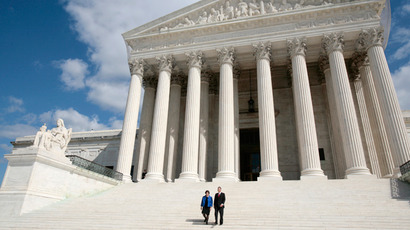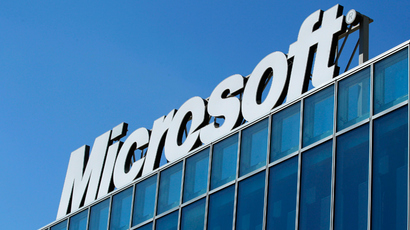Major Internet companies demand more transparency from government

The likes of Facebook, Google and more than 60 other Internet giants and advocacy groups have sent a letter to Washington urging the government for more transparency in the wake of disclosures exposing vast federal surveillance programs.
Sixty-three signees in all have added their name to a letter sent Thursday morning to President Barack Obama and over a dozen other figures from the legislative and executive branches asking the government to adjust the way it goes about collecting intelligence during national security investigations.
Disclosures attributed to National Security Agency contractor Edward Snowden last month rekindled discussion with regards to the federal government’s ability to easily collect telephone, email and Internet records, often scooping up personal information pertaining to American citizens along the way. And while the Obama administration continues to defend its spy policies provided under the Foreign Intelligence Surveillance Act and the PATRIOT Act, this week’s letter urges Uncle Sam to reconsider the way those probes are conducted.
Under current legislation, Internet Service Providers and other Web companies can be compelled to provide the government with the metadata of customers, yet at the same time they are often prevented from acknowledging those requests. A number of companies have published vague information about these FISA requests in recent months, including Google, Microsoft and Yahoo, yet hard figures pertaining to these requests aren’t allowed by law to be published.
The 63 signees on this week’s letter say the government should ensure that the companies entrusted with the privacy and security of their users’ data be allowed to regularly report statistics showing the number of government requests made under the PATRIOT Act and FISA, as well as the number of accounts or individuals impacted and figures reflecting instances in which the contents of phone calls or emails are recovered.
Other entities who have endorsed the letter include Silicon Valley companies AOL, Apple, LinkedIn, Microsoft, Twitter and Mozilla, as well as the American Civil Liberties Union, the Electronic Frontier Foundation and the Center for Democracy & Technology.
The president and his attorney general and director of national intelligence are all listed as intended recipients, as well as NSA Director Gen. Keith Alexander, House Speaker Rep. John Boehner (R-Ohio) and other members of Congress.
“Democracy requires accountability and accountability requires transparency. Yet the American people lack basic information about the scope of the government’s surveillance of the Internet, information that many companies would eagerly share with their users if only they weren’t gagged by the government,” CDT senior counsel Kevin Bankston, who organized the joint call-to-action, said in a statement. “Internet companies responsible for protecting the privacy and security of our communications need to maintain the trust of their users in the US and around the globe. Allowing companies to issue transparency reports that contain basic information about the government’s demands for data will help them do just that.”
In the letter, the companies add, “Just as the United States has long been an innovator when it comes to the Internet and products and services that rely upon the Internet, so too should it be an innovator when it comes to creating mechanisms to ensure that government is transparent, accountable, and respectful of civil liberties and human rights.”
Last week, Yahoo wrote Washington asking that the FISA court unseal its own arguments made during a 2008 effort to prevent the government and acquiring mass metadata without a want. ACLU attorney Alex Abdo told Mercury News that "This is the first time we've seen one of these companies making this broad an argument in favor of transparency in the FISA court.”
Other companies have pleaded with the FISA court in recent months to change their rules, including a passionate effort made by Microsoft in which Vice President John Frank wrote on a blog post, "We continue to believe that what we are permitted to publish continues to fall short of what is needed to help the community understand and debate these issues." Weeks later, new documents attributed to Snowden alleged that the Microsoft worked hand-in-hand with the government to assist with wiretapping operations.
Despite a major public backlash in the wake of Snowden’s revelations, the Obama administration continues to stand by the surveillance programs. NSA chief Gen. Keith Alexander said the leaks caused “irreversible and significant damage to the US.”














